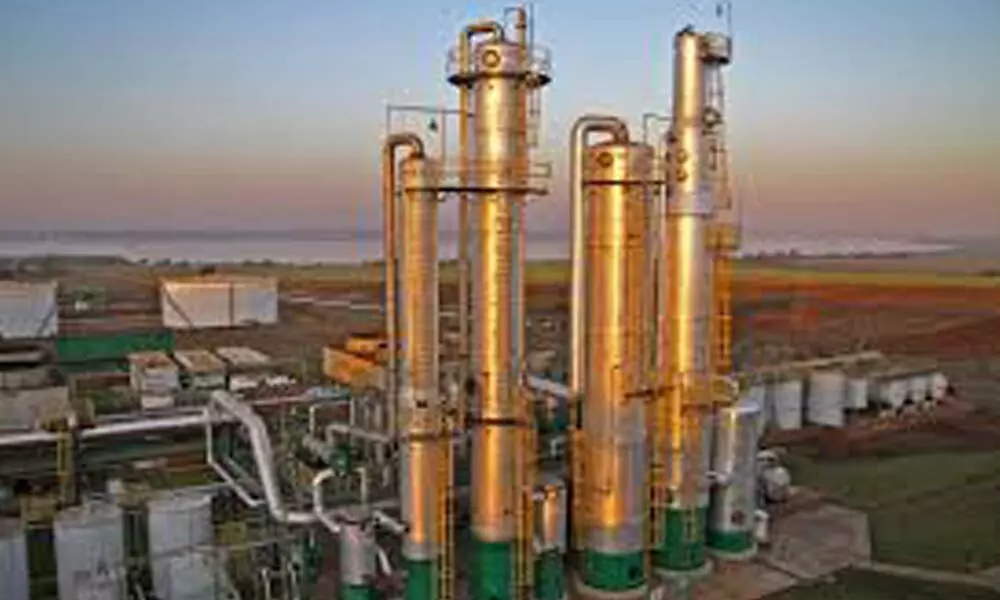Rising ethanol capacities a sweetener for sugar mills
Will improve credit profile in FY23: Report
image for illustrative purpose

Mumbai: Higher ethanol supplies due to enhanced distillery capacities and improving inventory position are likely to improve the credit profile of integrated sugar mills in 2022-23, according to a report.
Advancement of Ethanol Blended Petrol-EBP20 along with favourable policies such as remunerative pricing of ethanol, easing of regulations to enable interstate movements as well as relatively relaxed procurement procedures by oil marketing companies (OMCs) have enthused large sugar mills to step up their distillery capacities.
Sabyasachi Majumdar, senior vice-president and group head at ICRA, said: "The resultant ramp-up of ethanol supplies augurs well for the credit profile. We expect reduced inventory levels and thereby lowering borrowings and interest costs, this would meaningfully bolster the credit metrics of the sector from FY23. The net debt of ICRA sample of sugar companies would meaningfully moderate in FY23 considering the ethanol supply ramp up."
According to the ICRA report, domestic sugar production is expected to increase by 12.7 per cent to 30.9 million tonnes in sugar year (SY) 2021 and outstrip consumption by around 4.9 million tonnes. Exports are expected at around seven million tonnes supported by incentives and increasing international sugar prices, it noted. Hence, it said the closing stocks are likely to remain at around 8.6 million tonnes as on September 30, 2021, (lower than September 30, 2020 levels by 2.1 million tonnes), which is still higher than normative sugar stock levels of 6-6.5 million tonnes. Although higher diversion towards ethanol has already started getting reflected positively in revenue and operating profit growth for the industry for the past three years, the impact of the same may get amplified from FY23 onwards as enhanced distillery capacities start yielding results, it said. In the medium term, favourable policy initiatives towards higher diversion of sugar towards ethanol production, along with occasional sugar exports, is likely to substantially reduce the sugar surplus. It will also allow improvement in the demand supply dynamics of the industry on a sustainable basis and support the domestic sugar prices, it pointed out. It added that in the current fiscal, however, the revenues and operating margins of sugar companies are likely to remain at similar levels of FY21. The agency said that it is on the back of benefit of increased cane diversion towards B-heavy molasses being partly offset by expectations of higher production cost, reduced export subsidy as well as export volume, it added.

